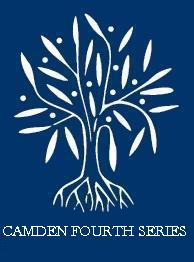No CrossRef data available.
Article contents
The Charge of James Mountagu Esq; to the Grand Jury, and other Jurys of the County of Wilts: At the General Quarter-Sessions of the Peace, held at the Devizes, April 26. 1720. Printed at the Request of the Grand Jury
Published online by Cambridge University Press: 21 December 2009
Extract
To love the Publick, to study Universal Good, and to promote the Interest of the whole World, as far as lies within our power; is surely the Height of Goodness, and makes that Temper which we call Divine. Ld Shaftesbury's Characteristicks, vol. I. p. 37.
LONDON: Printed for R. Mountagu at the Bible in Shear-Lane near Temple-Bar, and sold by Mr. Graves in St-James's Street, Mr. Bettesworth in Paternoster Row, Mr. Meadows and Mr. Brotherton in Cornhill, and Mr. Stagg in Westminster-Hall. 1720. (Price One Shilling.)
Chairman of the Quarter-Sessions held at the Devizes the 26th Day of April A.D. 1720.
We the Grand Jury, sworn to serve on the behalf of our Sovereign Lord the King for the Body of this County, for the present Sessions; do take the liberty to return our hearty Thanks, for your Excellent Charge: wherein you have so fully instructed [4] us, in our Duty to God, our King and Country.
- Type
- Research Article
- Information
- Copyright
- Copyright © Royal Historical Society 1992
References
page 137 note 1 3 vols. published 1711; 2nd ed. Corr. 1714: Vol. I, p. 37=A letter concerning Enthusiasm.
page 138 note 1 Here, the term used by JPs to speak of themselves.
page 141 note 1 This would be to return to the state of nature, as defined by Hobbes.
page 142 note 1 Nath. Bacon's Historical Discourse of the Uniformity of the Government of England.
page 142 note 2 Whitlock's Memoirs, p. 460
page 143 note 1 Reissued at Bristol, Nov. 1216.
page 143 note 2 “the Matters are to be heard and determined”: this is the exact formula “Oyer and (De)terminer,” of one of the five commissions.
page 146 note 1 Archbishop Tillotson was promoted to Canterbury in 1691, and died 1694.
page 147 note 1 The war of Spanish succession, ended by the treaty of Utrecht, which the Whigs found far too favourable to France.
page 147 note 2 Cardinal Portocarrero, the minister of Charles II of Spain.
page 148 note 1 Thomas Dalton, English lawyer (1682–1730).
page 150 note 1 A possible allusion, again, to the revocation of the Edict of Nantes, 1685.
page 152 note 1 A Somerset and West-country word to mean, a loft. Apparently, M. here alludes to the rather unpleasant way in which clothiers were alledged to treat weavers in the way of truck payments, stoppage of wages for damages, manipulation of weights and measures, etc. A pamphlet published in 1727, after the 1726 riots, quoted the very words of this Charge, accusing him (under the nickname of Intimidate, and making an allusion to his noble blood, since he was the grandson of the 1st earl of Manchester) of having sent a party of dragoons to stop a march of cloth weavers.
page 153 note 1 = He must be honoured as he, whose power he is wielding.
page 153 note 2 The episode alluded to is already mentioned in the introductory pages. The corporation of Marlborough was favourable to the Pretender, and they forbade the magistrates to hold their Q-S within the limits of the borough, making use of a clause of their charter that granted them a court of their own. This position was highly resented by some of the freeholders of the Marlborough division, who retorted with an inflamatory Presentment; at the following sessions, i.e. the one chaired by Montagu, this could not be left unmentioned, and M's attitude explains that the jury were so eager to see the text of the Charge through the press. See Wayler, James's History of Marlborough (1854), pp. 362–68Google Scholar. The same book describes Montagu as favourable to the Hanoverian settlement. Thanks are due to Mr. K. H. Rogers, Wiltshire County Archivist and Diocesan Records Officer, for this information.
page 153 note 3 Spectator no 125.
page 157 note 1 Spectatorno 125.




